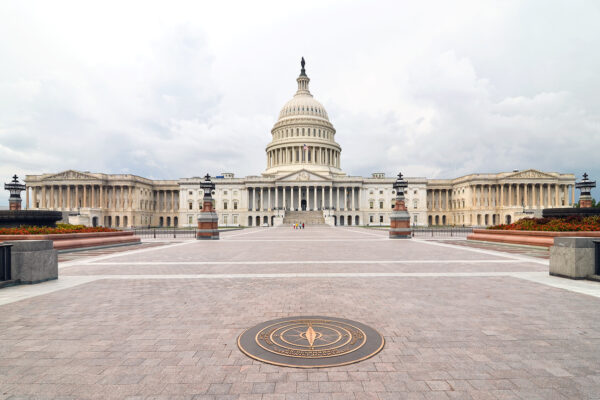
Frank J. DiStefano argues in The American Interest that America’s two-party system is going through a period of transformation.
American politics have been dominated by two parties from the start, but those parties, and their coalitions, have changed over time.
The current Democratic-Republican duopoly emerged from the Great Depression and the New Deal, when Democrats formed a coalition bewteen ethnic and working voters in the North and white voters in the South and Republicans split into moderate and conservative wings.
Consensus
The debate over the New Deal — with Democrats in favor and Republicans opposed — has essentially been resolved, according to DiStefano.
America adopted some of what the Democrats proposed but agreed to some of the limits that Republicans proposed. It agreed that government would indeed take responsibility for many matters of health, safety and welfare. It would have Social Security, Medicare and an Environmental Protection Agency. America also agreed that those responsibilities shouldn’t be unlimited in scope, and that national planning isn’t always the best way to meet them. There will be no more Great Societies.
Both parties have accepted the new consensus. Democrats wouldn’t really try to build another Great Society even if they could. Republicans wouldn’t really try to abolish Medicare even if they had the chance. They couldn’t even repeal Obamacare.
Yet both parties continue to speak in New Deal terms. The national debate, writes DiStefano, “is still built around a fading mirage of industrial-age America.”
Times are changing
- A single high school-educated worker can no longer support a middle-class family with an industrial job.
- America is no longer a beacon of the “free world” in a cold war, exporting its bounty — cars, appliances, movies, music — to the world as the only untouched economy after a devastating war.
- We are at the cusp of a global social and economic transformation — from an industrial to a global information economy — as significant as the transformation from the agricultural world to the industrial.
- The new economy is fast, mobile, disruptive. Competition comes from all corners of the globe.
- Cultural rules and customs are changing constantly.
New coalitions
Entire voting blocs are changing parties. University-educated professionals, who are prospering in the new economy, are shifting from the Republicans to the Democrats. (“Rockefeller Republicans have fully given way to Bloomberg Democrats,” is how Reihan Salam puts it.) Blue-collar workers and farmers who fear losing out, and white voters who fear losing power in an increasingly multiethnic America, are going the other way. Democrats are becoming what Ronald Brownstein has called a “coalition of transformation”; Republicans, a “coalition of restoration”.
Michael Lind has similarly argued that the new dividing line will be between cosmopolitans, liberals and internationalists on the left and nationalists, social conservatives and isolationists on the right.
Whatever the outcome, there is little doubt that the presidency of Donald Trump is accelerating the realignment.
